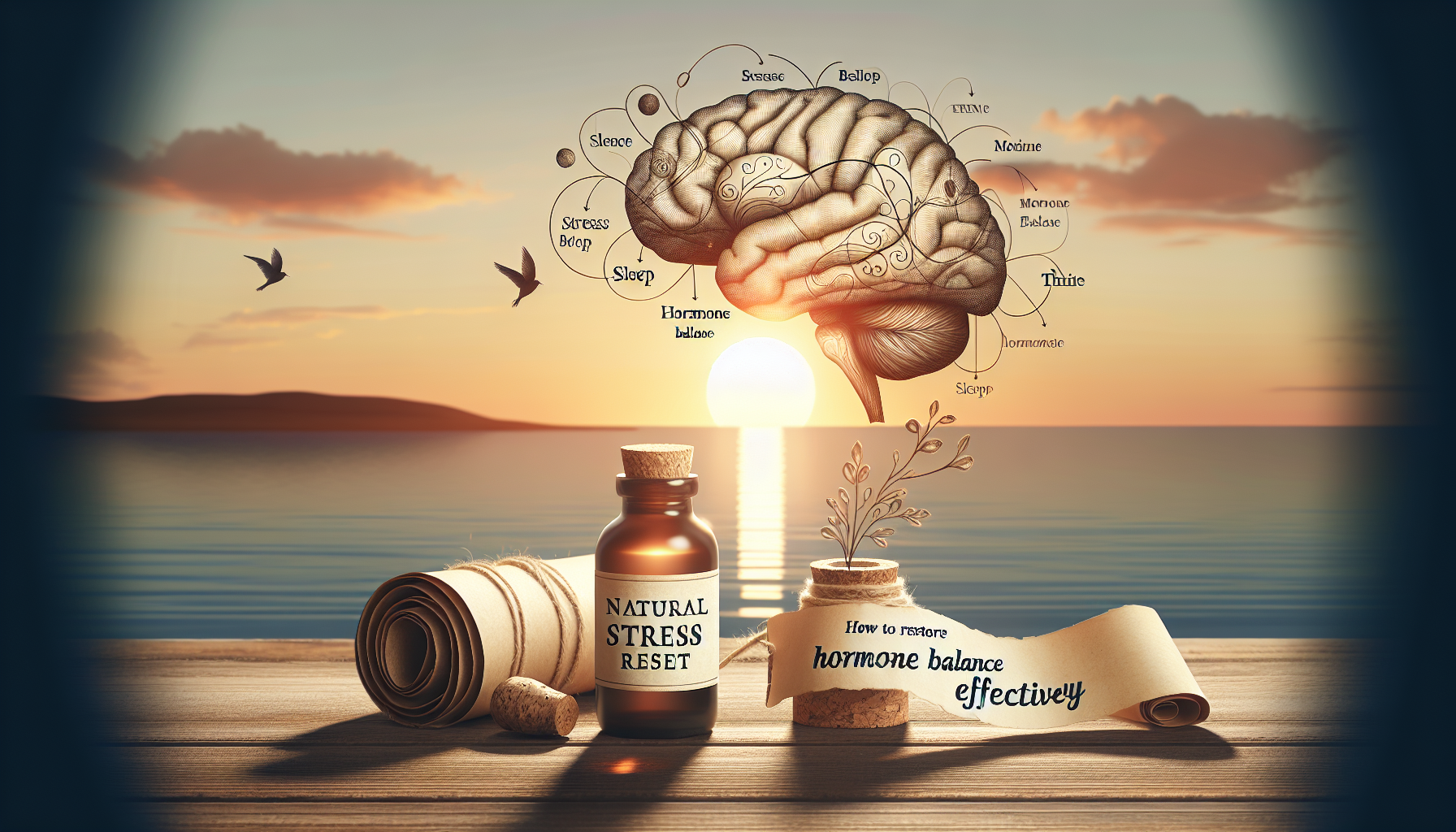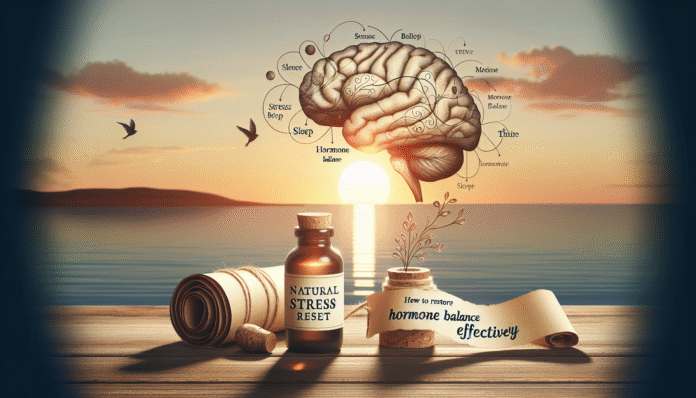In today’s hyper-connected world, sleep problems have quietly become a global epidemic. But the real villain isn’t just blue light, late-night caffeine, or endless scrolling—it’s stress. Chronic stress not only disrupts your sleep cycle but also wrecks your hormonal balance, creating a toxic loop that affects your mood, metabolism, and even fertility. Here’s how it’s happening—and how to break free naturally.

The Vicious Cycle: Stress, Cortisol & Sleepless Nights
This hormonal imbalance leads to:
- Difficulty falling asleep
- Frequent wake-ups during the night
- Low-quality, non-restorative sleep
Worse, lack of sleep spikes cortisol even more the next day. This vicious cycle also affects melatonin (your sleep hormone), insulin (your blood sugar hormone), and even sex hormones like estrogen and testosterone.
How Hormones Suffer from Stress-Induced Sleep Loss
When stress messes with your sleep, it creates a domino effect on your hormones:
- Insulin resistance: Increases your risk of weight gain and type 2 diabetes.
- Estrogen/progesterone imbalance: Can lead to irregular periods, PMS, or fertility issues.
- Low testosterone: Causes fatigue, low libido, and muscle loss in men.
- Thyroid suppression: Slows down your metabolism, making you feel sluggish.
Sleep is when your body repairs, recharges, and rebalances. Without it, your hormones can’t reset—and your body stays in survival mode.
Natural Ways to Reset Your Stress and Sleep Cycle
You don’t need pills to reclaim your sleep. These natural strategies can help you reset both your stress levels and hormonal rhythms:
1. Adopt a Consistent Sleep Routine
Go to bed and wake up at the same time every day—even on weekends. This trains your circadian rhythm to stabilize your melatonin production.
2. Limit Screen Time After Sunset
Blue light from screens suppresses melatonin. Use blue light filters or wear blue-blocking glasses in the evening.
3. Practice Evening Stress-Release Rituals
Try:
- Deep breathing or meditation
- A warm bath with Epsom salts (magnesium helps relax muscles)
- Journaling or gratitude writing
These calm your nervous system and signal your body it’s time to rest.
4. Support Your Body with Food and Herbs
- Magnesium-rich foods (spinach, almonds, bananas)
- Adaptogens like ashwagandha and holy basil
- Herbal teas: chamomile, lemon balm, or passionflower
5. Morning Sunlight, Evening Darkness
Get 15–20 minutes of sunlight within an hour of waking. It sets your internal clock and reduces evening cortisol naturally.
6. Exercise, But Not Too Late
Movement lowers cortisol—but avoid intense workouts close to bedtime. Try yoga or light stretching in the evening instead.
Final Thoughts
Your body isn’t built to run on stress. Chronic tension is more than just an emotional weight—it’s a biological disruptor that robs you of sleep and hijacks your hormones. The good news? Your body has a natural rhythm, and with a few intentional changes, you can reset the balance.
Don’t wait for burnout or a diagnosis. Start small. Breathe deep. Dim the lights. Reclaim your sleep—and your hormones will thank you.







